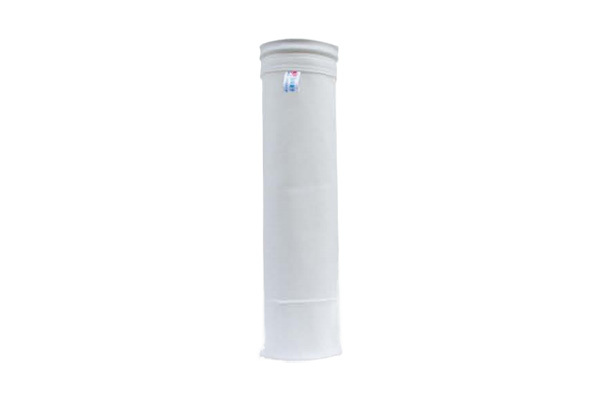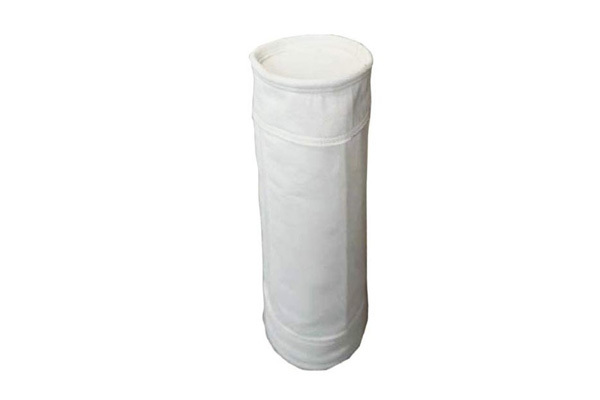Understanding the Critical Role of Filtration Cartridges in Industrial Equipment
Release time:
2025-04-22
Understanding the Critical Role of Filtration Cartridges in Industrial Equipment Table of Contents The Importance of Filtration Cartridges in Industrial Equipment Types of Filtration Cartridges Applications of Filtration Cartridges in Various Industries Maintenance Best Practices for Filtration Cartridges Impact of Filtration Cartridges on Equipment Performance How to Sele
Understanding the Critical Role of Filtration Cartridges in Industrial Equipment
Table of Contents
- The Importance of Filtration Cartridges in Industrial Equipment
- Types of Filtration Cartridges
- Applications of Filtration Cartridges in Various Industries
- Maintenance Best Practices for Filtration Cartridges
- Impact of Filtration Cartridges on Equipment Performance
- How to Select the Right Filtration Cartridge
- Emerging Trends in Filtration Technology
- Frequently Asked Questions
The Importance of Filtration Cartridges in Industrial Equipment
Filtration cartridges serve as the backbone of many industrial systems. They are designed to remove contaminants from fluids and gases to ensure that machinery operates smoothly and efficiently. **Contaminants can lead to significant operational issues**, including wear and tear on equipment, reduced efficiency, and even catastrophic failures. By investing in high-quality filtration cartridges, businesses can **prolong equipment life** and maintain operational integrity.
In essence, filtration cartridges are crucial for maintaining **consistent product quality** and ensuring the safety of the work environment. They play a pivotal role in industries ranging from manufacturing to pharmaceuticals, ensuring clean processes and meeting regulatory standards.
Types of Filtration Cartridges
Understanding the different types of filtration cartridges is essential for selecting the right one for your application. Here are some commonly used types:
1. Disposable Filtration Cartridges
These cartridges are designed for single-use and are typically used in applications where contaminants are high. They offer convenience but require regular replacement to maintain efficiency.
2. Cleanable Filtration Cartridges
Cleanable cartridges can be reused after cleaning, making them a more cost-effective option in the long run. They are often employed in environments with lower contamination levels.
3. Depth Filtration Cartridges
Depth filtration cartridges use a thick filter medium that captures particles throughout its depth, allowing for higher dirt-holding capacity. They are ideal for applications with varying particle sizes.
4. Membrane Filtration Cartridges
These cartridges employ a semi-permeable membrane to separate impurities from fluids or gases. They are widely used in water treatment and pharmaceutical industries for their efficiency in removing microorganisms.
Applications of Filtration Cartridges in Various Industries
Filtration cartridges find applications across various sectors. Understanding their usage can help organizations maximize the effectiveness of their equipment.
1. Manufacturing
In manufacturing, filtration cartridges help maintain the quality of hydraulic fluids, coolants, and lubricants, ensuring machinery operates smoothly and reducing downtime.
2. Pharmaceuticals
In the pharmaceutical industry, filtration cartridges play a crucial role in ensuring the purity of products by removing particulate contamination from raw materials and final products.
3. Food and Beverage
Filtration is essential in food and beverage processing to eliminate impurities that can affect product quality and safety. Cartridges are used in various steps, including water purification and oil filtration.
4. Water Treatment
Filtration cartridges are integral to water treatment processes, ensuring that drinking water meets safety standards by removing harmful contaminants and particulates.
Maintenance Best Practices for Filtration Cartridges
Proper maintenance of filtration cartridges significantly influences their performance and lifespan. Here are some best practices:
1. Regular Inspection
Routine inspections can help identify any signs of wear and tear or clogging. Early detection allows for timely replacement, which can prevent operational issues.
2. Cleaning Procedures
For cleanable cartridges, develop a cleaning schedule that aligns with usage levels. Use appropriate cleaning agents to ensure that the cartridges are restored to their optimal condition.
3. Monitor Pressure Drops
Keep an eye on pressure drops across the filter, as significant changes can indicate that the cartridge is becoming clogged and may need replacement.
4. Follow Manufacturer Guidelines
Adhering to the manufacturer’s guidelines for maintenance and operation is crucial. Each type of cartridge may have specific requirements that ensure optimal performance.
Impact of Filtration Cartridges on Equipment Performance
The performance of filtration cartridges directly correlates with the operation of industrial equipment. **High-performance filtration** can lead to:
1. Enhanced Efficiency
Clean fluids and gases lead to improved machinery efficiency, as contaminants that might cause friction or corrosion are removed.
2. Reduced Downtime
With proper filtration, the risk of equipment failure decreases, leading to lower downtime and improved productivity.
3. Cost Savings
Investing in quality filtration cartridges can lead to significant cost savings over time. Reduced maintenance costs and increased equipment longevity contribute to a healthier bottom line.
How to Select the Right Filtration Cartridge
Choosing the right filtration cartridge requires careful consideration of various factors:
1. Understand Your Application Requirements
Identify the specific contaminants present in your fluids or gases and the required filtration level. This understanding helps in selecting the right type and specification of cartridge.
2. Evaluate Flow Rates
Different cartridges have varying flow rates. Ensure that the selected cartridge can handle the required volume without compromising performance.
3. Consider Compatibility
Ensure that the materials used in the cartridges are compatible with the fluids or gases they will filter. This consideration prevents degradation and ensures effective filtration.
4. Review Manufacturer Credentials
Choose cartridges from reputable manufacturers known for quality and reliability. A track record of performance can give you confidence in your choice.
Emerging Trends in Filtration Technology
The filtration industry is constantly evolving with new technology, which can enhance efficiency and effectiveness. Some trends include:
1. Advanced Materials
New materials, such as nanofibers, are being developed for filtration cartridges, providing enhanced performance and greater contaminant removal efficiencies.
2. Smart Filtration Solutions
The rise of IoT (Internet of Things) technology allows for smart filtration solutions that monitor filter performance in real-time, providing data that can optimize maintenance schedules.
3. Sustainability
As industries move towards sustainability, there is a push for eco-friendly filtration solutions that minimize waste and use recyclable materials.
Frequently Asked Questions
1. How often should I replace my filtration cartridge?
The replacement frequency depends on the application and usage levels. Regular inspections will help determine the right time for replacement.
2. Can I clean and reuse my filtration cartridge?
Many cartridges are designed for cleaning and reuse, but it's essential to follow the manufacturer's guidelines to ensure effectiveness.
3. What contaminants can filtration cartridges remove?
Filtration cartridges can remove a variety of contaminants, including dirt, dust, particulate matter, and microorganisms, depending on their design.
4. Are there specific standards for filtration cartridges in industries?
Yes, various industries have specific regulatory standards that filtration cartridges must meet to ensure safety and effectiveness.
5. What are the signs that my filtration cartridge needs replacement?
Signs include decreased flow rates, increased pressure drops, and visible dirt or clogging on the cartridge surface.
Conclusion
In conclusion, filtration cartridges play an indispensable role in the functionality and efficiency of industrial equipment. Their ability to remove contaminants not only enhances performance but also extends the lifespan of machinery. By understanding the types of filtration cartridges, their applications, maintenance practices, and emerging trends, businesses can make informed decisions that lead to increased productivity and cost savings. Investing in the right filtration solutions ensures that industrial operations run smoothly while maintaining the highest standards of quality and safety.
latest News









